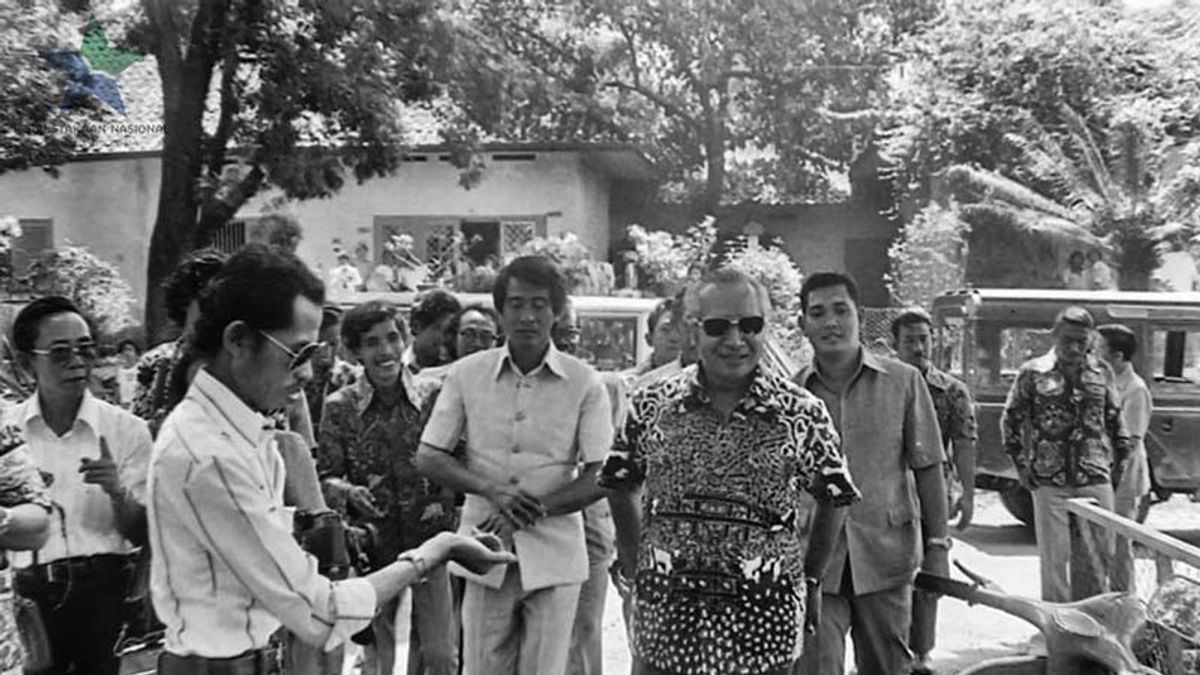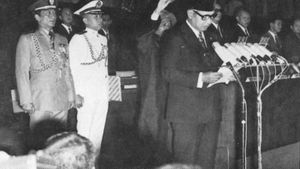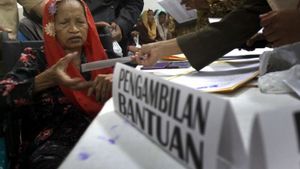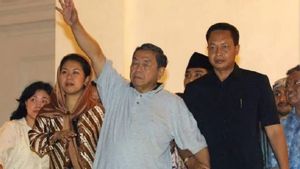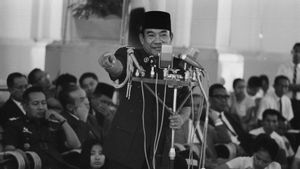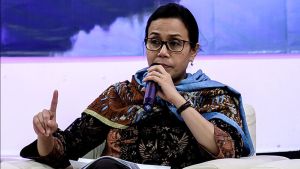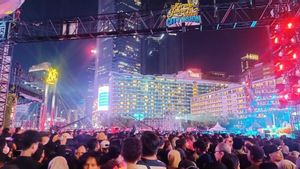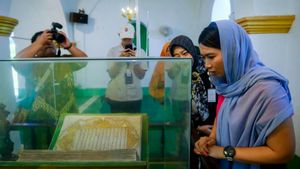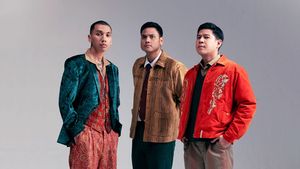JAKARTA – History today, 52 years ago, on April 6, 1970, President Suharto made a secret trip to West Java and Central Java. Not many people have been told about this trip. Including regional heads. This visit was carried out by Suharto to see firsthand the condition of his people firsthand.
The visit was also a big consideration for Suharto in formulating policies. Even though his visits often make the regional head confused because he doesn't have time to make a rousing welcome.
Suharto is the President of Indonesia who likes visiting. He always takes the time to visit each region or village in the midst of his hectic political agenda. This habit was done to see the condition of the people firsthand.
All because of his duties as the president who must accommodate all parties. Including the little people. moreover, Suharto himself came from a farmer's son. His background made Suharto have an emotional closeness with the small people. He is often skeptical of hearing people's complaints directly. These include harvest problems, poverty, and the dreams of small people. Farmers in particular.

The results of the visit here and there were summarized by Suharto into an effective program. All to meet the needs of the people. According to him, leading without looking directly at the condition of the people is actually impossible. Because everything needs to be arranged so that it is right on target.
"With a serious face, Pak Harto said that to be able to make everyone eat eggs, get tired of eating chicken, receive education, and health, it would take a long time of hard struggle."
“It is not easy to achieve all of that. Suspicion, criticism, and insults, become food every day. This is not when international pressure is taken into account. These international institutions often want to dictate national development policies,” said Sukardi Rinakit as quoted by Sugiono MP in the book Selamat Jalan Pak Harto (2008).
Secret Visits
In addition to official visits, President Suharto also perpetuates unofficial visits, aka incognito. These visits are usually spontaneous. Suharto immediately asked his aides to prepare a vehicle that was not too flashy for him to ride to the area under review. On a visit to West Java on April 6-10, 1970, for example.
President Soeharto departed from Jakarta with only a Toyota Hi-Ace car. He left with little escort. Even then, Suharto specifically asked them to keep their distance. So as not to attract people's attention, he thought.
At that time, Suharto traveled to Subang, Indramayu, Tegal, Purwokerto, Ciamis, Tasikmalaya, Garut, Bandung, Cianjur, and Sukabumi. These visits often make local regional heads dizzy because they do not know about Suharto's arrival. Even so, not a few are aware of the agenda of Suharto's arrival, so they can get ready to welcome The Smiling General.

“You can imagine a president going around Central Java, East Java, and West Java in secret, secretly. I was worried too. In addition, those who participated were Dan Paspampres Colonel Munawar Commander of the Guards, one aide, Doctor Mardjono, and mechanic Pak Biyanto who took care of the vehicle. At that time Indonesia entered Pelita II. As head of state, Pak Harto feels that he has to go down directly to see for himself how government programs are implemented.”
“That way the situation in the regions and villages can be seen for what it is, as well as the president getting direct input from the community. We never ate in restaurants, stayed at the village head's house, or the people's houses. In terms of logistics, apart from bringing rice from Jakarta, Ibu Tien also provided anchovy sauce and dry tempeh. We were really concerned at that time and I saw that Pak Harto really enjoyed the trip in and out of the village,” concluded Try Sutrisno in the book entitled Pak Harto: The Untold Stories (2011).
That is today's historical record, regarding President Suharto's visit on April 6, 1970.
VOIR éGALEMENT:
The English, Chinese, Japanese, Arabic, and French versions are automatically generated by the AI. So there may still be inaccuracies in translating, please always see Indonesian as our main language. (system supported by DigitalSiber.id)
